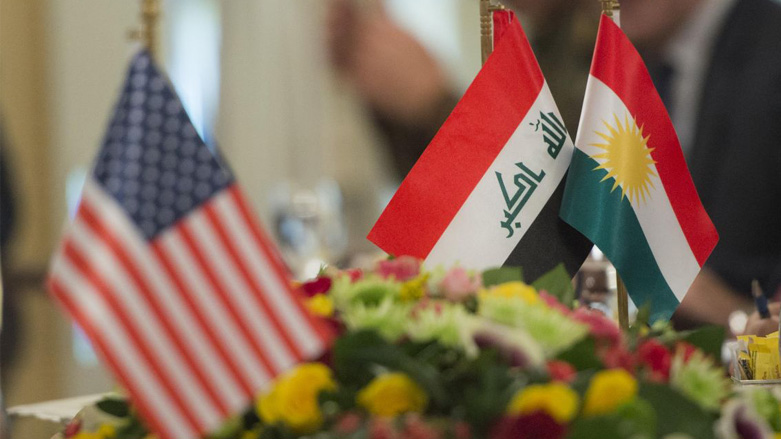Kurdistan to abide by Baghdad’s decision regarding US sanctions on Iran: Spokesperson

ERBIL (Kurdistan 24) – The Kurdish semi-autonomous region will abide by decisions made by the federal government of Iraq regarding US sanctions on neighboring Iran, a Kurdish official affirmed on Sunday.
“The Kurdistan Region is part of Iraq,” the spokesperson for the Kurdistan Regional Government (KRG), Safeen Dizayee, told Kurdistan 24.
“Whatever the federal government of Iraq decides, the Kurdistan Regional Government [KRG] will implement it,” Dizayee said when he was asked about the impact of new US sanctions on Tehran, which come into effect Monday Nov. 5.
The US’ second round of sanctions targets Iran’s oil, banking, and shipping sectors. States that are not in compliance will be subject to secondary US sanctions, although Washington has provided for temporary waivers—Significant Reduction Exemptions (SREs) to be issued for renewable, six-month periods.
The SREs are for countries dependent on Iranian oil imports and which have made a substantial effort to reduce such purchases.
Eight countries will receive SREs, and two are so close to ending their imports of Iranian oil that they are expected to end such purchases “within weeks,” US Secretary of State Mike Pompeo explained earlier last week.
Recently, an Iraqi delegation visited Washington DC to request a waiver regarding the sanctions, and Dizayee stated he hoped those negotiations have yielded some results.
“Iraq has a long border with Iran. Fifty percent of Iraq’s electricity supply comes from Iran, and the country imports 40 percent of its natural gas from Iran,” the Kurdish spokesperson said, suggesting the sanctions could create issues for Iraq’s supply chain.
The Prime Minister of the Kurdistan Region, Nechirvan Barzani, previously stated that Kurdistan will deal with US sanctions on Iran “within the framework and policy of Iraqi federal government.”
Iraq will reportedly receive a waiver that will allow it to continue importing food, along with gas and other energy supplies from Iran, Reuters recently reported, citing three Iraqi officials.
However, Iraq will be obligated to pay Iran in Iraqi dinars rather than US dollars, with the money to be kept in an escrow account for humanitarian purchases. The same conditions, presumably, would also apply to the Kurdistan Region.
“The geographical location of Iraq requires the country to have a very close relationship with Iran, but the political situation requires Iraq to have a strong relationship with the US,” Luqman Fayli, former Iraqi Ambassador to the US, told Kurdistan 24.
Fayili believes that Iraq should focus on preserving its interests, stating what the US does against Iran is “a strong tsunami.”
He also noted that new Prime Minister of Iraq, Adil Abdul-Mahdi, should create an operation room to be directly in contact with Tehran and Washington.
“Abdul-Mahdi has a difficult task because he alone cannot keep the balance between the two countries, rather, he needs the support of the entire state of Iraq,” Fayli added.
Editing by Nadia Riva
(Additional reporting by Bilessa Shawes)
